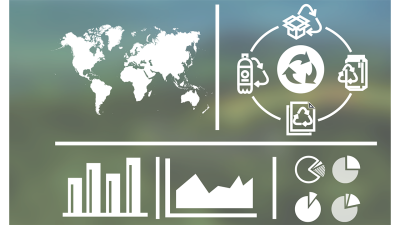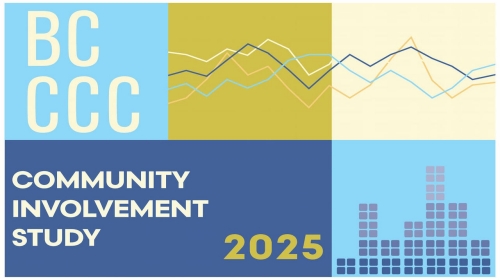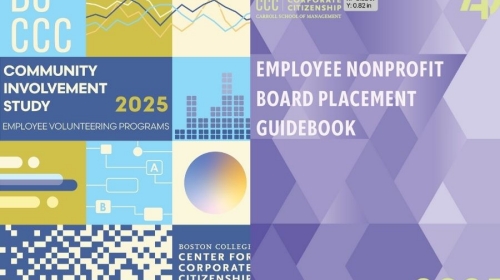WEBINAR: This webinar explores how to measure and communicate your organization's social impact with proven frameworks and strategies that matter to stakeholders.
Corporate citizenship reporting is trending up

As companies today are being asked to report on not only their bottom line, but also how they are working to address ESG challenges such as climate change and social inequalities, voluntary reporting has become an increasingly important responsibility of corporate citizenship professionals. According to a recent KPMG report, 93 percent of the 250 largest global corporations (G250) now publish corporate citizenship reports, a dramatic increase from only 35 percent twenty years ago.[1] With this steady growth in disclosure, there has also been increasing competition among frameworks and standards that lend structure, comparability, and assurance guidance to the reporting process.
There are more than a dozen reporting frameworks and standards, which have commonalities while also offering their own unique lenses either through more narrowly defined audiences or by focusing on certain aspects of environmental, social, and governance topics. Corporate citizenship professionals interested in starting or updating their reporting practices should look to at least one of three leading organizations: the Global Reporting Initiative (GRI), the Carbon Disclosure Project (CDP), and the International Integrated Reporting Council (IIRC). GRI is the most widely adopted framework, utilized by 75 percent of G250 companies.[2] Gaining in adoption, 7,000 companies disclose environmental information through CDP[3] and 40 of the Sustainable Business Forum (SBF) 120 publish integrated reports, a 50 percent increase from the previous year.[4]
While some companies choose to align only with a single reporting framework or set of standards, a 2018 study of corporate citizenship reporting trends by the Sustainable Investment Institute (Si2) found that 97 percent of S&P 500 companies that publish a corporate citizenship report utilize multiple frameworks and standards when constructing their reports.[5] The Si2 study supports this with the following results from an analysis of S&P 500 firms:
- 95 percent of reporting companies include environmental performance metrics,
- 86 percent of reporting companies include social performance metrics, and
- 40 percent of all S&P 500 companies provide sustainability information in their financial reports (e.g. annual reports, 10-K, and proxy proposals).[6]
To learn more about corporate citizenship reporting, check out the Boston College Center for Corporate Citizenship’s webinar recording Leading Frameworks for Transparency to hear representatives from GRI, CDP, and IIRC present on their organizations’ frameworks and answer questions from corporate citizenship professionals.
[1] Boonen, M. (2017). The KPMG Survey of Corporate Responsibility Reporting. Retrieved May 30, 2019, from https://home.kpmg/be/en/home/insights/2017/10/the-kpmg-survey-of-corporate-responsibility-reporting-2017.html
[2] Boonen, M. (2017). The KPMG Survey of Corporate Responsibility Reporting. Retrieved May 30, 2019, from https://home.kpmg/be/en/home/insights/2017/10/the-kpmg-survey-of-corporate-responsibility-reporting-2017.html
[3] CDP. (2019). About us. Retrieved May 30, 2019, from https://www.cdp.net/en/info/about-us
[4] Deloitte. (2018). Overview of integrated reports published by SBF 120 companies in 2018. Retrieved May 30, 2019, from https://integratedreporting.org/wp-content/uploads/2018/10/Deloitte-study-integrated-report-SBF120_0918_vDEF_ENG.pdf
[5] Lukomnik, J. (2018). State of Integrated and Sustainability Reporting 2018. Retrieved May 30, 2019, from https://corpgov.law.harvard.edu/2018/12/03/state-of-integrated-and-sustainability-reporting-2018/#1
[6] Lukomnik, J. (2018). State of Integrated and Sustainability Reporting 2018. Retrieved May 30, 2019, from https://corpgov.law.harvard.edu/2018/12/03/state-of-integrated-and-sustainability-reporting-2018/#1
Related Content
RESEARCH BRIEF - Researchers investigated how ESG activities help or hurt financial performance, using nine years of data from over 1,200 global companies.
RESEARCH BRIEF - Researchers analyzed 4 US energy exchange-traded funds (ETFs) over 15 years, including 2 dirty energy funds tracking fossil fuel companies and 2 clean energy funds tracking renewable energy companies.
RESEARCH BRIEF - Researchers conducted a survey, which measured perceptions of CSR and ethical leadership within the manufacturing and service industries.
WEBINAR: This webinar explores how corporate giving will be reshaped by the One Big Beautiful Bill. Hear directly from corporate citizenship leaders as they share innovative, real-world strategies that deliver impact for communities and results for business.
This study explores shifting trends in employee volunteering, corporate giving, and other means of corporate community involvement.
This guidebook offers insights on placing employees in nonprofit board service roles.
This study explores shifting trends in employee volunteering, corporate giving, and other means of corporate community involvement.








